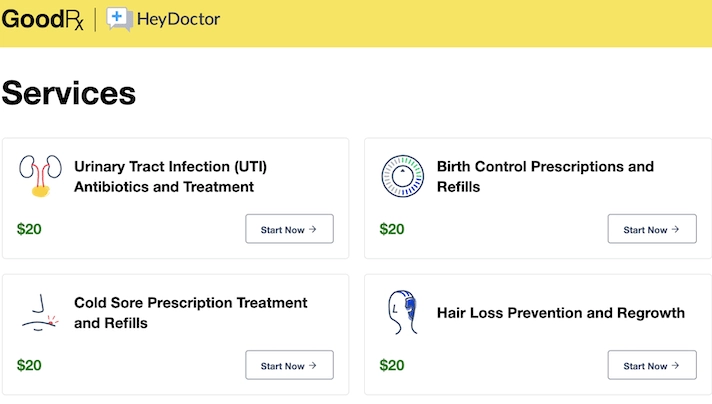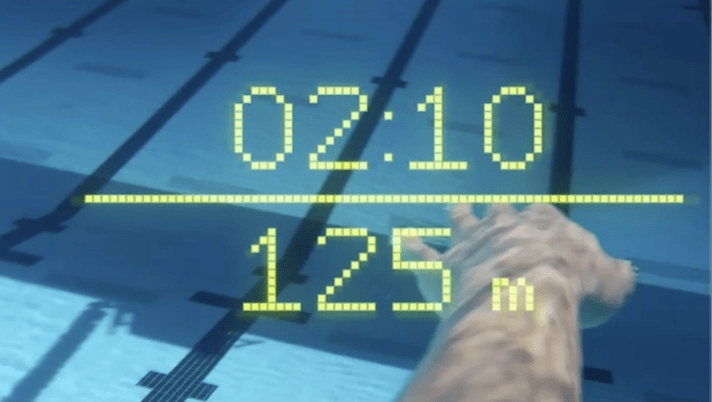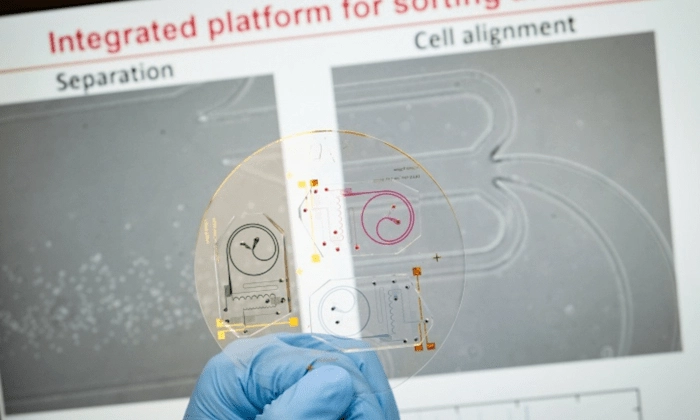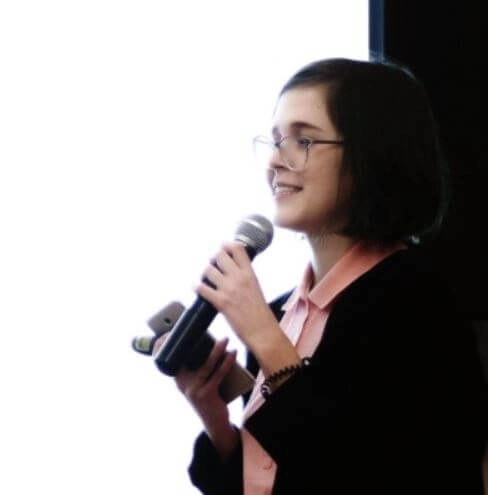

Digital healthcare news — September 2019
- Digital healthcare industry: market news, financial reports, deals, acquisitions, merges
- Funding in digital healthcare startups
- Launches, planned launches: Amazon, Phillips, Google, and others
- New partnerships and other business news from digital healthcare
- Science and research
- Other uncategorized news
- What to read in September 2019
- What to listen in September 2019
Newsflash: Amazon doesn’t build a secret hospital facility, DeepMind is finally a part of Google, and this month, as it seems, is about telemedicine and wearables. Let’s see what has happened in September!
Digital healthcare industry: market news, financial reports, deals, acquisitions, merges
TrialCard, a company that works connects patients and pharma manufacturers who create their medications, acquire Mango Health, creators of an app that help people deal with meds adherence and scheduling. It’s the third TrialCard’s acquisition in the last twelve months.
OptimizeRx, a company that develops solutions for messaging between pharma players and healthcare providers, plans to acquire RMDY Health — a SaaS platform for digital therapeutic. The latter will get $8 million in cash.
Actiste’s IoT unified toolkit with eSIM for people with diabetes receives two (TWO) CE marks.
Google absorbs its healthcare arm, British DeepMind. DeepMind was acquired 10 months ago, and now it’s finally a part of Google — including its Stream apps.
Heal, a company that creates an application for booking and processing clinicians house calls on devices, acquired NY-based Doctors on Call, that provided house call services for seniors during the last 50 years.
Sanofi, a biopharmaceutical company makes deals with Abbot, a tech company, and Happify, a digital platform. One deal is focused on combining Abbot’s glucose monitoring system and Sanofi’s insulin dosing information. Another — on using Happify’s communication capability to target mental health issues in people with multiple sclerosis.
Biobeat’s patches for live signs monitoring gets FDA clearance!
EMPATHIQ (company that produces review management and patient experience software for health providers) acquires Rivews (a company that develops patient experience platform for after-care).
Chatbots in healthcare will reach $498 million in 2029 due to the growing popularity of smart devices, rising quality of connectivity, their cost-effectiveness and a positive impact on customer experience.
Funding in digital healthcare startups
Unnatural Products, a drug discovery startup that combines AI and chemistry to develop treatments for drug targets, raised $6 million in seed.
Robin Healthcare creates smart assistants for doctors. Startup raises $15 million in Series A.
Boston-based concierge platform for health navigation, Firefly Health, gets $10.2 million in Series A.
InsightRX raised $10 million in Series A. They develop a tool that process EHR data to figure out meds dosing requirements for patients.
Mightier and its biofeedback-based video game that helps children develop coping mechanisms to deal with their emotions secured $250,000.
A platform that helps payers and providers connect in a cost-effective way while being integrated into existing organization’s sites and apps, Vim, raised $24 million in Series B.
Aural Analytics, a startup that uses AI speech analytics algorithms to detected changes in brain health raised $4.3 million in seed.
Hiring platform for nurses, Incredible Health, raised $15 million in Series A. It’s a job matching service that uses requirements of both parts of recruiting offering vacancies.
Karuna Labs raised $3 million in seed. It’s a company that develops a VR program to help people manage chronic pain.
A company that hand-delivers medication straight to customers (A for Accessibility) — digital pharmacy Capsule — secures $200 million.
Health Recovery Solutions (or HRS) that develops enterprise remote monitoring platform raised $10 million.
An app for Apple Watch that uses EEG data and machine learning to customize users’ workout routine, RocketBody, raises $10 million.
Eko raises another $20 million (in Series B). The company develops device-driven monitoring devices that use machine learning for live signs processing.
User-generated content is a king, and Voro, a startup just for that — for patients to share their doctors recs — secures 2.5 million in seed funding.
TNH Health, Brasilian company that develops AI-based chatbot for users to talk about their anxiety, depression, and stress, gets $2 million in Series A.
Creators of a BrightInsight platform, which is, essentially, an ecosystem that analyzes and manages data from different devices from different branches of healthcare and integrates with EHRs or other providers’ systems, raised $25 million in Series A.
Ginger, a digital mental health startup that focuses on behavioural health for people with anxiety and depression, closes $35 million in Series C.
Maple, Canadian telemedicine company, lands $10.9 million in funding.
Liva Healthcare, a coaching app that aims to help pregnant women who are at risk of developing Type 2 diabetes get a throughout, personalized health plan, secures €603,405 in funding from the EU.
China-based Huimei Healthcare (a child of a joint venture of Mayo Clinic and Hillhouse Capital) raises $30 million in Series C. They plan to invest the money in Dr Mayson, an AI-based program for CDSS.
Wefight, a French startup that wants to help people with chronic diseases defeat loneliness through Vik, an educational chatbot-within-an-app, raises €1.8 million.
NexHealth gets $4.2 million for their patient experience management platform.
Launches, planned launches: Amazon, Phillips, Google, and others
Amazon launches Amazon Care, a telemedicine-driven care platform for its Seattle employees. Now we know.
And, Frontive (powered by Amazon Echo) launches a smart personal health platform. It connects with patients’ personal records and, well, waits for “Alexa, ask Frontive…” to give back relevant, personalized tips & tasks away.
Phillips announces a connected chest wearable that will help users fight sleep apnea: its vibrations will notify people when they should change position in their sleep.
Meru Health launches a wearable that is meant to help users understand how mind and body are connected through body responses (biofeedback).
After the acquisition of HeyDoctor, a telemedicine company, GoodRx, a tool for meds digital cost management, launches a virtual care tool called GoodRx Care.

Largest public pan-Asian insurance group, AIA, updates its solution, Vitality App, with a new feature that promotes healthy sleep habits in the Asia-Pacific region. The initiative is called #OneMoreHour because a single additional hour of sleep can make your life a lot better.
Bold Health, a London-based digital healthcare company, releases a platform called Zemedy. It aims to improve gut health through cognitive-behavioural therapy.
Kaia Health, a company that helps people with physical therapy through 2D motion tracking technology and AI, secures another $8 million to treat musculoskeletal disorders.
Apple launches Research app for owners of Apple Watch. Using it, people will be able to participate in health research programs through the sharing of their data.
Kensho plans to call out pseudoscientists through the launch of the scientific guide to natural medicine.
Shanghai-based insurtech startup CareVoice launches CareVoiceOS, a system for insurers to create more efficient and compelling health plans. CareVoice combines healthcare and insurance services, which is a totally new experience for end-customers.
Android users now can stream audio through hearing aids! (Which is awesome, by the way.)
The Digital Service Center Helsinki creates new virtual tools that help seniors get accessible care and stay connected to their loved ones.
Asus will release fitness watches that looks good (very good) and includes an ECG sensor, PPG sensor, and a lot of other useful things.
Planned Parenthood released a new virtual care platform in 27 American states.
Dignity Health released The PEARR tool to help healthcare providers identify human trafficking and help those who are traumatized feel better.
Garmin’s new series of watches monitors users’ sleep and other life signs.
In Israel, Sheba Medical Center and Telesofia Medical, release a telemedicine program to connect people with cancer and their doctors.
Form, a Canadians who develop tech-supported goggles, and Polar, a company from Finland which operates in the field of sports technology, will release AR-enabled goggles for swimmers.
Collaboration between Alphabet’s life science branch, Verily, and iRhythm, digital health startup, will bring people with atrial fibrillation an AI-based analytical tool to help manage their condition.
New partnerships and other business news from digital healthcare
XRHealth who provides extended reality and therapeutic apps partners with Allscripts. Through Allscripts Open APIs, they will “provide doctors with one platform to view all critical information.”
Catasys, who uses AI and data analytics to detect health plan members with a feasible behavioural condition and, then, to treat it, makes a deal with Goldman Sachs to get $45 million in debt financing.
German health insurance group called PKV launches a startup fund focused on digital healthcare, mostly apps, telemedicine, digital prevention mechanisms and digitalization of care.
Signant Health from Pennsylvania, a company that develops a suite of digital healthcare solutions for providers and patients will team up with Shanghai Mental Health Centre to provide electronic consent forms for participants’ of Shanghai Mental’s Schizophrenia study through Trial Consent solution.

Pharmacy chain Boots UK partnered with a startup called LIVI from Sweden to provide in-store digital GP consultations both to startups’ customers and NHS patients.
Telehealth startup Doctor Anywhere, based in Singapore, partnered with Bao Minh Insurance, one of the most important insurance groups in Vietnam. That will help to bring a whole set of online and offline patient-oriented services on a single platform for seven million more people.
Science and research
Singapore is the third most sleep-deprived region after Japan and India — Fitbit.
Also, Singapore scientist developed a small, low-cost cheap that can analyze the condition of white blood cells in minutes. If this lab-on-chip proves to be efficient in lab tests and clinical settings, it will allow detecting early signs of distress from a human’s immune system.

Other uncategorized news
VR startup Rendever helps seniors socialize more and experience new things!
Oops. Period tracking apps seem to share data with Facebook. Why, Mark.
Push Doctor, a first UK platform that offers video consultation with general practitioners (GP), is now available for over 2.1 million people thanks to the company’s partnership with NHS.
What to read in September 2019
Vik Bahru’s article on reaching patients who need healthcare the most.
How Swiss pharma digitizes operations: Novartis’ example.
How telehealth companies that work with student campus health services affect students’ behavioural health and physical care
What to listen in September 2019
Learn how smart hospital beds and intelligent analytics & tracking can save lives with Matt Johnson, EarlySense CEO.
If you want us to take a look at the news you’d like to see here, contact us.
Tell us about your project
Fill out the form or contact us

Tell us about your project
Thank you
Your submission is received and we will contact you soon
Follow us

